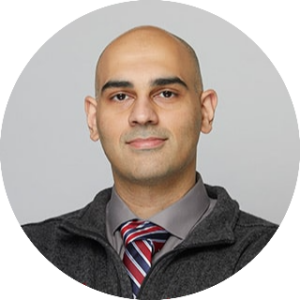When we think about doctors, we usually think of those who treat common ailments. However, when it comes to complex issues related to the brain and nervous system, we need the expertise of a neurologist. Neurologists are medical detectives specializing in understanding, diagnosing, and treating disorders of the brain, spinal cord, and nerves. This article aims to demystify the role of neurologists, emphasizing their importance in treating all types of bodily injuries and the crucial role of EMG/NCS testing in diagnosing nerve injuries.
Understanding Neurology
The Nervous System: Our Body’s Command Center
The nervous system is a complex network that includes the brain, spinal cord, and nerves throughout the body. It controls everything we do, from breathing and moving to thinking and feeling. When something goes wrong in this system, it can affect any part of the body, leading to various symptoms and health issues.
Neurologists: The Specialists of the Nervous System
Neurologists are doctors who specialize in diagnosing and treating nervous system disorders. They have extensive training in understanding the complexities of the nervous system and how to treat its disorders.
The Role of Neurologists
Diagnosing Neurological Disorders
Neurologists use a variety of tools and techniques to diagnose neurological disorders. This process often begins with a detailed review of the patient’s medical history and a neurological examination.
The Diagnostic Process:
- Medical History: Understanding the patient’s past health, symptoms, and any familial history of neurological disorders.
- Neurological Examination: Assessing motor and sensory skills, balance and coordination, mental status, and changes in mood or behavior.
- Diagnostic Tests: These might include MRI or CT scans for detailed images of the brain and spinal cord, EEG for studying brain activity, and lumbar punctures for examining spinal fluid.
Treating a Range of Conditions
Neurologists manage and treat a variety of neurological disorders. Some of the most common conditions include:
- Headaches and Migraines: These can range from episodic tension-type headaches to chronic migraines.
- Epilepsy: A disorder characterized by recurrent seizures.
- Stroke: A condition caused by disrupting blood supply to the brain.
- Parkinson’s Disease and Alzheimer’s Disease: Progressive conditions that affect the brain and nervous system.
- Multiple Sclerosis (MS): An immune-mediated process that affects the central nervous system.
- Peripheral Neuropathy: Nerve damage outside the brain and spinal cord, often affecting the hands and feet.
Focusing on Bodily Injuries and Trauma
Neurologists are experts in treating injuries and trauma that affect the nervous system. This includes:
- Traumatic Brain Injuries (TBI): Injuries to the brain from external forces.
- Spinal Cord Injuries: Damage to the spinal cord that causes changes in its function.
- Nerve Damage: Resulting from accidents, sports injuries, or repetitive motions.
EMG/NCS Testing: Key Diagnostic Methods
Electromyography (EMG) and Nerve Conduction Studies (NCS) are critical tests used by neurologists to diagnose conditions affecting the muscles and nerves.
The Importance of EMG/NCS
These tests measure the electrical activity of muscles and the speed and strength of nerve signals. They are essential in diagnosing conditions like carpal tunnel syndrome, peripheral neuropathies, and muscle diseases.
Why is the EMG Test Performed?
An Electromyography (EMG) test is performed for several key reasons related to evaluating the health and function of muscles and the nerve cells that control them (motor neurons). The test can help diagnose various conditions related to muscle and nerve disorders. Here are some common reasons why an EMG test is performed:
- Diagnosing Neuromuscular Disorders
- Identifying Nerve Dysfunction
- Pinpointing the Location of Dysfunction
- Differentiating Between Muscle and Nerve Disorders
- Monitoring Disease Progression
- Guiding Treatment Decisions
- Pre-Surgical and Post-Surgical Assessments
The test involves inserting a needle electrode through the skin into the muscle. The electrical activity detected by this electrode is displayed on a monitor and can be heard through a speaker. This activity helps diagnose the presence and extent of muscle and nerve disorders.
What Are The Conditions Diagnosed With NCS Test
Nerve Conduction Studies (NCS), often performed along with an Electromyography (EMG) test, are used to diagnose conditions related to the function and health of peripheral nerves. These tests measure how quickly and efficiently the nerves can send electrical signals. Conditions commonly diagnosed with NCS include:
- Carpal Tunnel Syndrome: NCS can detect this condition, which is caused by compression of the median nerve within the wrist, by measuring the speed of nerve signals in the hand and arm.
- Peripheral Neuropathy: This involves damage to the peripheral nerves, often causing weakness, numbness, and pain in the hands and feet. NCS helps in determining the extent and distribution of nerve damage.
- Guillain-Barré Syndrome: This is a rare condition where the body’s immune system attacks the nerves. NCS can help confirm the diagnosis and assess the severity.
- Charcot-Marie-Tooth Disease: This hereditary neurological disorder affects the peripheral nerves. NCS is used to detect and evaluate the extent of nerve damage.
- Sciatic Nerve Problems: NCS can help diagnose issues with the sciatic nerve, which runs from the lower back down each leg.
- Herniated Disk Disease: NCS can assist in identifying nerve damage or pinching due to herniated discs in the spine.
- Diabetic Neuropathy: Diabetes can cause nerve damage, particularly in the legs and feet. NCS is helpful in diagnosing and monitoring this condition.
- Ulnar Neuropathy: This condition involves damage to the ulnar nerve in the arm and can be diagnosed with NCS.
- Tarsal Tunnel Syndrome: Similar to carpal tunnel syndrome, but affecting the feet, NCS can help diagnose this condition.
- Facial Nerve Disorders: Including Bell’s Palsy, where sudden weakness in the facial muscles occurs, NCS may be used to assess nerve function.
NCS tests are valuable in assessing the speed and strength of nerve signal conduction, helping to pinpoint areas of nerve damage and understand the nature of various neurological conditions. They are critical in developing an effective treatment plan for nerve-related disorders.
When To See A Neurologist?
Seeing a neurologist is recommended when you have symptoms or health issues that suggest a problem with your nervous system. Neurologists specialize in diagnosing and treating disorders of the brain, spinal cord, and nerves. Here are some situations where it might be advisable to consult a neurologist:
- Chronic or Severe Headaches: If you experience frequent headaches, migraines, or the headaches are severe and do not respond to over-the-counter medications.
- Chronic Pain: Pain that is neuropathic in nature, meaning it stems from the nerves or nervous system.
- Dizziness and Problems with Balance: Frequent dizziness, especially if it’s accompanied by problems with balance or coordination.
- Numbness or Tingling: Persistent or unexplained numbness, tingling, or weakness, especially if it’s localized to one side of the body.
- Movement Problems: Difficulty with movement, such as tremors, clumsiness, unexplained muscle weakness, or difficulty walking.
- Memory Problems or Confusion: Significant changes in memory, thinking, understanding, or confusion, which could be signs of dementia or other neurological conditions.
- Seizures: Unexplained seizures, convulsions, or episodes of loss of consciousness.
- Vision Problems: Sudden vision problems, particularly if they are not related to known eye conditions.
- Sleep Problems: Chronic sleep issues, especially those where breathing is interrupted (such as sleep apnea) or when there’s excessive daytime sleepiness.
- Speech or Language Difficulty: Problems with speech or language that develop without an obvious cause.
- Muscle Weakness: Unexplained muscle weakness, particularly if it’s progressive or significantly interferes with daily activities.
- Changes in Behavior: Significant changes in behavior or mood which are unexplained by other conditions.
If you experience any of these symptoms, especially if they are new, worsening, or affecting your quality of life, it’s important to seek medical advice. A neurologist can conduct a detailed neurological examination, recommend tests, and guide you toward the appropriate treatment or management of your condition.
A Day in the Life of a Neurologist
Clinical Consultations
Neurologists spend a significant part of their day seeing patients in clinics. They review patient histories, conduct examinations, order and interpret tests, and discuss treatment plans.
Hospital Rounds
Many neurologists also work in hospitals, where they see patients admitted for acute neurological issues like stroke, seizures, or brain bleeds.
Collaborative Care
Neurologists often collaborate with other healthcare professionals, including primary care physicians, physical therapists, orthopedists, and neurosurgeons, to provide comprehensive patient care.
Research and Continuing Education
Neurologists engage in research and continuously update their knowledge to stay abreast of the latest developments in neurology. This includes attending conferences, participating in research studies, and reading medical journals.
Challenges and Rewards in Neurology
Challenges in Neurology
- Complex Diagnoses: Neurological disorders can be complex and challenging to diagnose and treat.
- Emotional Toll: Watching patients with serious pathologies decline over time is disheartening.
Rewards of Being a Neurologist
- Improving Lives: Helping patients manage and overcome neurological disorders is deeply rewarding.
- Advancements in Neurology: Being part of a continually evolving field with new treatments and technologies.
The Evolving Field of Neurology
Neurology is a rapidly evolving field. Recent advancements in technology and medicine have led to better diagnostic tools and more effective treatments for neurological disorders.
Technological Advances
Innovations like advanced MRI techniques, brain stimulation therapies, and improved surgical techniques are revolutionizing the treatment of neurological disorders.
Breakthroughs in Medication
New medications and therapies are continually being developed, offering hope for conditions like Alzheimer’s disease, epilepsy, and multiple sclerosis.
Schedule a Consultation with a Top Neurologist in NYC
From diagnosing complex conditions to treating all types of bodily injuries and using advanced tools like EMG/NCS testing, neurologists are crucial in helping patients lead healthier, more fulfilling lives.
If you’re experiencing symptoms that suggest a neurological disorder, or if you’re in search of the best neurologist in NYC, consider scheduling an appointment at Neurodiagnostics Medical P.C. Our team of experts, equipped with state-of-the-art diagnostic tools, is dedicated to providing you with the highest quality neurological care. Don’t hesitate to take the first step towards understanding and managing your neurological health.
We accept most insurance plans, including no-fault, PIP, and workers’ compensation, making it easier for patients to obtain the treatment they need. So, don’t hesitate to contact us at (347) 602 9530 to schedule a consultation!


